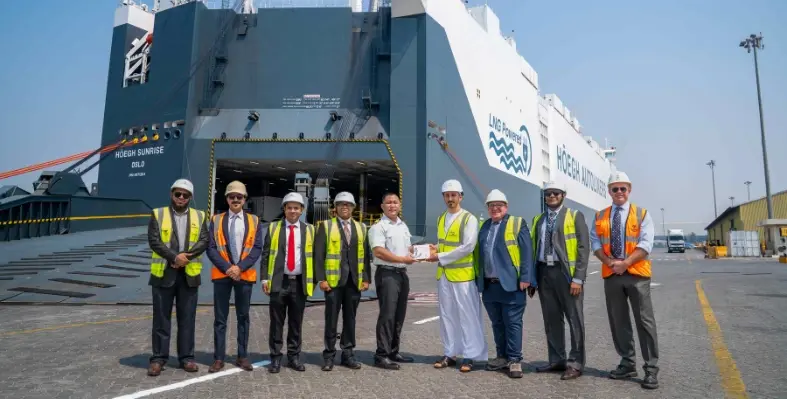IVECO and its long-term partner MTT, through EuroMT Srl bodybuilder, have begun delivering 20 Eurocargo units to the Directorate of Civil Defense in Iraq.
The first batch of Eurocargo ML180E28 4x2 models marks the debut of firefighting water tankers in Iraq. Each vehicle is equipped with a EuroMT Srl 10,000-litre water tank and a high-performance firefighting pump system, designed to offer flexibility, efficiency, and rapid emergency response capabilities.
Machine Technology Trading Co. (MTT), an official IVECO dealer for several years, is headquartered in Baghdad with a secondary branch in Erbil, Kurdistan Region. The company provides full coverage across Iraq, offering the complete range of IVECO trucks.
Khalid O. Mawlood, general manager of MTT, said, "We are proud that our local Governorate has chosen our company together with IVECO brand for the fleet of firefighting vehicles and we hope to serve this mission as always we did in the past and we will continue to do."
Ali Sheikholmoloki, IVECO business manager for Iraq, added, “In this special year, which IVECO is turning to 50 years, we are celebrating together with our historical partner MTT the delivery of 20 Eurocargo units firefighting water tankers equipped to Al Diwanya Governorate in Iraq. I can proudly say that Eurocargo is the most versatile vehicle in its category which surely will bring us many more achievements in this market for different segments.”
Eurocargo: a multi-mission truck
Eurocargo stands out as a symbol of reliability, flexibility, and versatility. Designed for a fast-changing and competitive market, the model combines strength and agility with a refreshed design that enhances both aesthetics and performance.
Available in over 11,000 variations, the Eurocargo range includes seven gross vehicle weight options, four power ratings, seven gearboxes, and three cab types to meet any operational requirement. Its bumper design allows easy access to the windscreen, while LED Daytime Running Lights and optional Xenon headlights ensure safer night driving. Every design detail, from the reshaped deflector to the UV-filtered windscreen, improves aerodynamics and comfort.
Cab options for every mission
Eurocargo offers three cab types — Day, Sleeper, and Crew — each available with two roof heights. The Day cab is suited for urban use, balancing width and length for ease of manoeuvrability. The Sleeper cab, available in standard or high roof versions, offers overnight accommodation with one or two bunks and up to 260 litres of internal storage. The Crew cab, ideal for construction and emergency services, carries up to six passengers plus the driver, along with essential tools and equipment.











